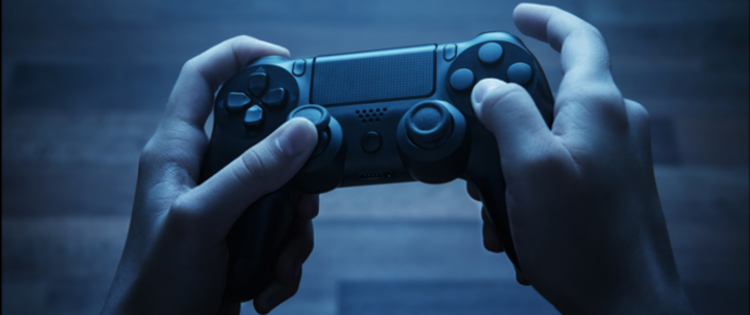
How do I know if my tween has “gaming disorder”?
How do I know if my tween has “gaming disorder”? https://mediatrics.com/wp-content/uploads/2018/07/GamingDisorderAtM.png 750 315 Mediatrics Mediatrics https://mediatrics.com/wp-content/uploads/2018/07/GamingDisorderAtM.pngQ: I recently read that the World Health Organization has added Gaming Disorder as a mental health diagnosis in the International Classification of Diseases and am concerned about my son’s gaming. As soon as he comes home from school, he games online with his internet friends until we have to force him to eat dinner, then he returns to gaming and we have another battle before bed. This behavior has only been happening for the past 3 months, but already his grades have dropped and I’ve noticed that he hangs out with fewer of his school friends. Does he have Gaming Disorder, and if so, does he need a detox like an addict?
~ Disorder or Disrespect, Georgia
A: Dear Disorder,
The World Health Organization’s (WHO) recognition of Gaming Disorder is an important first step toward the clinical community recognizing that many people struggle with problematic media use and that biobehavioral science can address this unforeseen health problem of the Digital Age. There is much work still to be done, but this formal diagnosis will allow for treatment options to be developed and made accessible to more young people who struggle with their interactive media use.
In naming Gaming Disorder, the WHO advances clinical care by moving away from the term “Internet Addiction Disorder”, which was established in China in 2008 and used in South Korea where the government deems it a public health crisis, estimating that 10% of adolescents are affected. While the term “addiction” draws public attention, in clinical practice, we have found it to be counterproductive. In the medical community, much energy has been spent arguing over, but not resolving, whether out-of-control behaviors such as internet use or sex should be called “addictions”. Among the public, “addiction” is used as a joke “I’m addicted to shopping” or worse, is deeply stigmatizing, reminding people of skid row alcoholics or junkies. Parents of children and teens who are, like your son, struggling with problems controlling the amount of time they spend with media, do not see their children the same way as they would see an addict, and subsequently delay getting their child to care.
Fortunately, the Clinic for Interactive Media and Internet Disorders (CIMAID) and the Center on Media and Child Health (CMCH) at Boston Children’s Hospital have been evaluating and treating this clinical condition for more than 5 years. While it is good that the WHO is building global awareness, we are concerned that Gaming Disorder is too narrow to describe what we are seeing in young people who come to our clinic. We are not only seeing problems with gaming, such as that with your son, but also with social media, pornography, and what we’re calling “information-bingeing” which is open-ended searching and viewing of short-form videos, memes, hyperlinks, wikis and other internet black holes.
Our clinical experience and research have shown that it is not a specific device or activity that is problematic, it is the interactivity that attracts them, keeps them engaged, and immerses them to the point where they lose track of time and place. Because we are seeing a diversity of dysfunctional interactive behaviors that are not device- or application-specific, we have found that Problematic Interactive Media Use (PIMU) is the most accurate, comprehensive, and clinically effective description of what young people like your son are experiencing.
You are doing the right thing in seeking answers and help for your son now, as he is currently struggling and disrupting family life. While WHO’s conservative 12 month timeframe for Gaming Disorder is designed to avoid labeling young people early, a year of PIMU can cause significant harm to a teen’s academic performance, relationships with family and friends, and physical health, as you have discovered. The earlier that young people struggling with PIMU get to care, the easier and quicker their recovery.
We have found that many of the young people who come to us for PIMU are struggling with underlying conditions such as Attention Deficit Hyperactivity Disorder (ADHD), anxiety, depression, or other established psychological diagnoses that may have been subclinical (unseen) in their every day lives, but revealed themselves in the interactive media environment (such as gaming) which provided distraction, mastery or “self-medication”. When we treat young people’s underlying condition along with behavioral therapy for PIMU, they usually do well. I would urge you to speak to your son’s primary care physician, a child psychologist, or school guidance counselor to find a health care provider who feels confident and competent to address his PIMU.
To help you get started, here is some additional information:
• Clinic for Interactive Media and Internet Disorders (CIMAID)
• Risks, benefits and ways to play video games healthfully
• Time Management
Enjoy your media and use them wisely,
~ The Mediatrician




